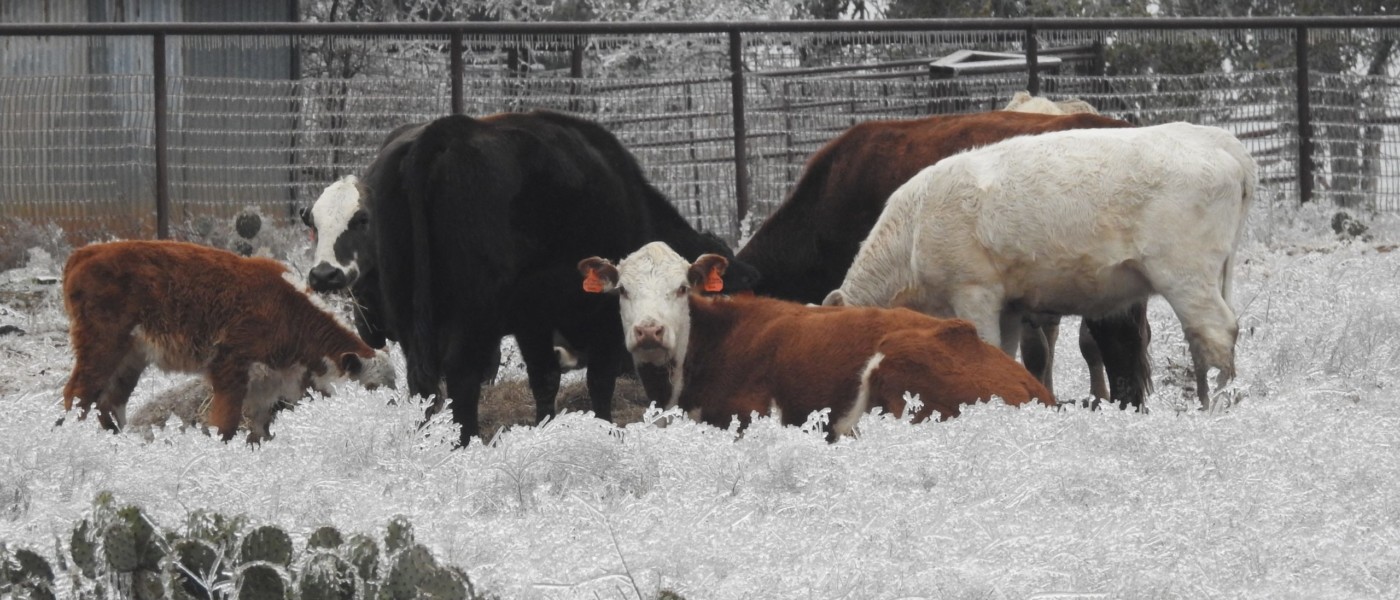On the morning of Thursday, February 12, an unprecedented week-long freeze hit Texas, affecting thousands of farmers and ranchers. Farmers prepared by covering field crops, laying hay for their animals, and filling propane tanks to heat their greenhouses. Despite their heroic efforts, even the most hardy farmers struggled and suffered immense losses.
Winter Storm Uri struck at a most precarious time. Many farmers had recently planted their warm-weather crops, with their cool-weather crops, like leafy greens, beets, cabbage and celery, mature in the fields. Delicate transplants ready for spring planting filled greenhouses and cattle, sheep and goats were in the middle of calving season, bringing new life into very cold and dangerous conditions. And it wasn’t just cold weather—with the power grid failure and loss of water, devastating impacts on farms lasted for weeks. In addition to lost crops and livestock, farmers suffered damage to their irrigation systems and other infrastructure essential for their operations and they have been working to replant their lost crops.
The damage incurred is not just physical and economic though; farmers worked around the clock to save the lives of their animals and crops, hoping to mitigate total disaster, as they struggled themselves to stay warm in freezing temperatures that persisted for days. Many farmers and ranchers called it the worst disaster they’ve experienced on their farms.
Texas has been dealt many natural disasters in the last decade and as a result a strong network of farm organizations has formed that can quickly mobilize to help farmers and ranchers when disaster strikes. This was especially true in response to Uri. A steering committee was quickly formed, made up of staff from an array of grass-roots organizations across the state, including:
- Central Texas Young Farmers Coalition
- Farm & Ranch Freedom Alliance
- GROW North Texas
- Small Spaces LLC
- Texas Center for Local Food
- Texas Organic Farmers and Gardeners Association
- Texas Small Farmers & Ranchers Community-Based Organization
- University of Texas Rio Grande Valley Agroecology
This group has so far raised nearly $120,000 to fund emergency grants for Texas farmers and ranchers. The fund will provide relief for small and medium-sized farms across Texas, focusing on those using sustainable and organic methods, and giving priority to farmers of color. Funds will also support future disaster relief work and ongoing climate adaptation for farmers.
If you’d like to donate to help Texas farmers and ranchers recover, you can do so by clicking here.
Through our Family Farm Disaster Fund, Farm Aid has contributed $27,000 to the Texas Farmer Winter Storm Relief Fund, and an additional $11,000 to impacted farmers and ranchers to the north of Texas in Oklahoma via the Oklahoma Farmers Union and the Black Historical Research Project, a non-profit organization that works with rural farmers and ranchers to enhance their ability to stay on the family farm.



